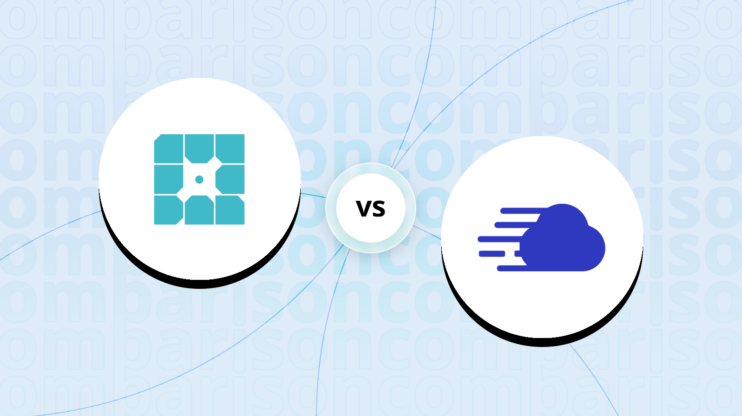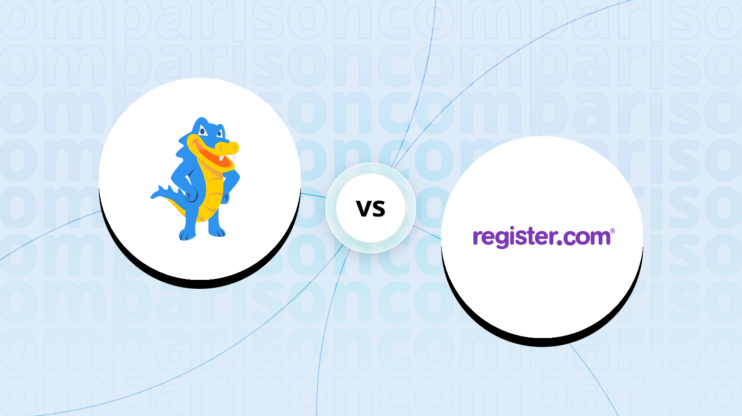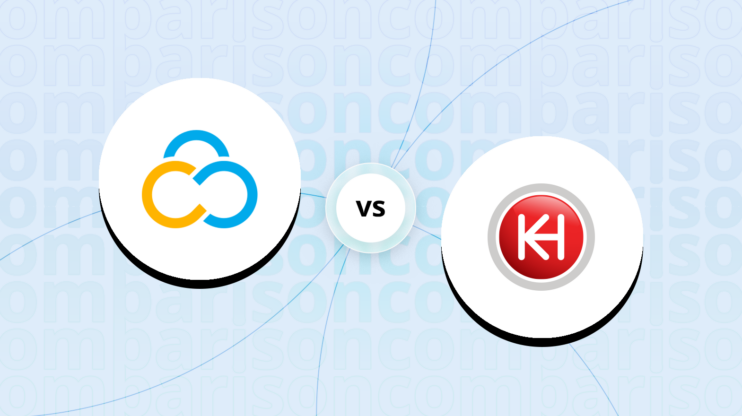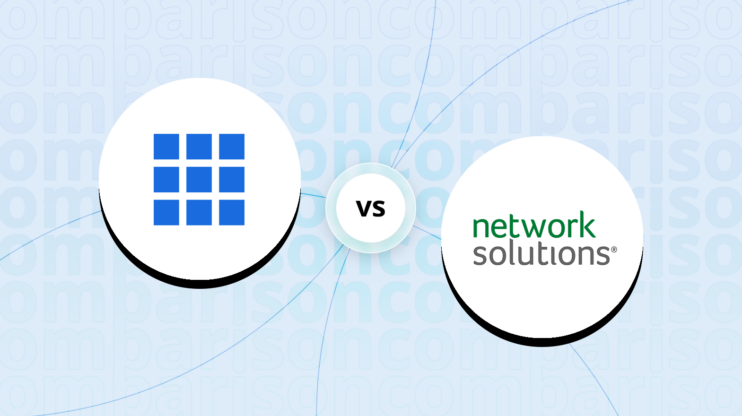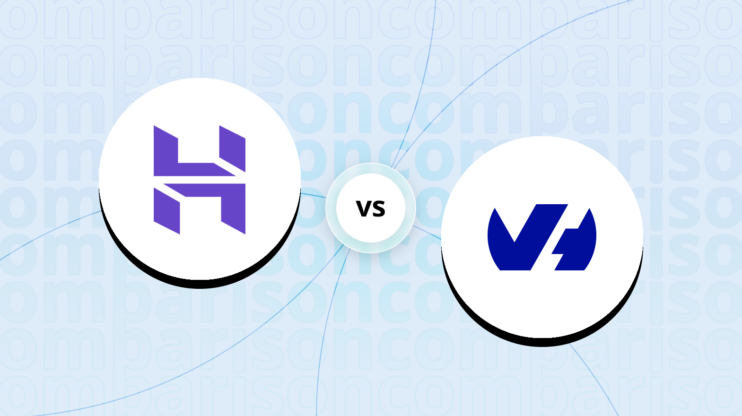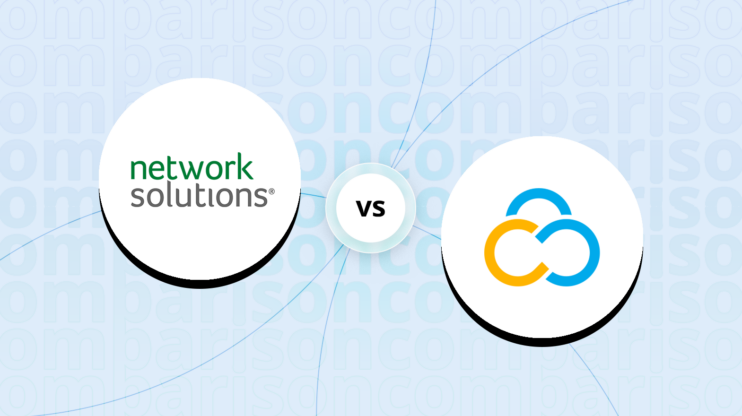Dreamhost vs WestHost: Final verdict
Looking over DreamHost vs. WestHost, it’s clear why both hosts are so popular. They have both hosted millions of
websites that run on WordPress for decades, building up a loyal customer base.
-
WestHost (Overall grade: 7.8)
shines with affordable pricing and features such as unlimited SSL certificates and a personalized control panel, making it a strong option for beginners. Its focus on ecommerce hosting, superior security measures, and extensive VPS plans at competitive prices cater to growing businesses and those prioritizing long-term growth. WestHost ensures robust performance with global data centers and included CDN in higher-tier plans. Despite the positive aspects, users have reported inconsistencies in customer support efficiency and frustrations with outdated administrative guides, potentially hindering the user experience for more intricate tasks.
DreamHost (Overall grade: 8.2)
impresses with its specialized Managed WordPress Hosting, various hosting plans, and high performance with a guaranteed 100% uptime. It offers cloud hosting with SSD storage, server-level caching, and redundant monitoring to ensure consistent performance. DreamHost’s user-friendly custom control panel is a significant advantage for those less tech-savvy, and its extensive support resources, including automated site migration tools, add further convenience. However, while their technical support is well-regarded for its chat and email responses, the lack of direct phone support could be a potential drawback for some users seeking faster resolutions.
 Overall grade:8.2 |
 Overall grade:7.8 |
|
|---|---|---|
| Uptime and Availability | 8.5 | 7.8 |
| Hosting Performance | 7.8 | 8.3 |
| Hosting Security | 7.8 | 8.0 |
| Price | 8.2 | 8.5 |
| Hosting Features | 7.9 | 6.5 |
| Ease Of Setup | 8.9 | 8.2 |
| User Management | 8.1 | 7.2 |
| Customer Support | 8.3 | 7.7 |
| User feedback | 4/5 | 3/5 |
Hosting types offered
Both platforms provide a variety of hosting types, each designed to meet the different needs of users.
 |
 |
|
|---|---|---|
| Shared hosting | ||
| Cloud hosting | ||
| WordPress hosting | ||
| Ecommerce hosting | ||
| VPS hosting | ||
| Dedicated hosting |
Although both offer a variety of hosting plans tailored to different needs, in certain cases, one platform may prove to be more suitable.
Detailed comparison
Uptime and availability
Evaluates the average uptime statistics, uptime guarantee and overall availability of the hosting
provider
Score Components:
- Uptime percentage (30%): evaluates the uptime statistics in given period of time
- Uptime guarantee (20%): Assesses if the platform offers an uptime guarantee and
whether the actual uptime matches the promised guarantee. - General performance (25%): Evaluates how fast is the average response time and overall
it’s stability. - Responsiveness (10%): Adaptability to different devices and screen sizes.
- Availability (25%): Reflects the total downtime and number of outages.
 8.5
8.5
 7.8
7.8
🏆 Winner DreamHost: Known for exceptional uptime and fast server speeds.

DreamHost guarantees 100% uptime and provides compensation for any downtime, offering customers peace of mind. Performance tests confirm high reliability and fast response times, with average response times hovering around 231ms. Stress tests further demonstrate DreamHost’s stability under heavy loads, making it a solid choice for consistent performance.

WestHost does not offer an explicit uptime guarantee but showed a reliable performance with 100% uptime in a month’s monitoring. Its global data centers support average load times and speed, rated at 75% by GTmetrix. WestHost focuses on redundancy and security measures, ensuring data protection and steady service.
Which one has better hosting performance?
Score Components:
- Hosting speed (30%): This includes SSD quality, Load times, PageSpeed score ranges,
additional information on website speed, built-in plugins for performance enhancement, available caching
methods, and CPU/RAM options - CDN (20%): Considers whether CDN is available or not, whether it’s free or paid, and
the quality of the CDN service - Available data centers (30%): Evaluates the number of data centers and their locations
globally. - Scalibility (20%): Looks at whether elastic scaling is available, the process required
to scale (manual upgrade vs. automatic scaling), the presence of dedicated servers, and the costs
associated with scaling.
 7.8
7.8
 8.3
8.3
🏆 Winner
Westhost: When comparing DreamHost and Westhost, both offer robust performance features suited to hosting various types of websites. DreamHost’s performance shines with high-performance cloud hosting, SSD storage for speedy file transfers, and NGINX servers known for handling large numbers of connections. It also includes helpful features like server-level caching, which enhances load times without additional plugins. Meanwhile, Westhost provides lightning-fast VPS cloud hosting with SSD for instant read/writes and a global network of data centers, ensuring optimal data placement and redundancy. Westhost includes a CDN in higher-tier plans to boost site performance. Both offer globally distributed data centers, but DreamHost doesn’t have a built-in CDN in all plans.
Website Speed
DreamHost leverages NGINX hosting and SSD storage, contributing to faster load times and enhanced server performance. With automatic server-level caching and OPcache, DreamHost ensures consistent high-speed delivery of web content. Free SSL certificates and redundant monitoring further optimize website speed. Westhost, on the other hand, focuses on lightning-fast VPS cloud hosting using SSDs for enhanced read/write speeds. The inclusion of a CDN in higher-tier plans can significantly improve performance by distributing content closer to visitors. Both services offer competitive speeds, but the built-in CDN with Westhost may provide an extra edge in performance.
Scalability
DreamHost offers expandable RAM and storage, supporting seamless upgrades as your site grows. They provide various hosting plans, including managed WordPress, VPS, and dedicated hosting, with prices ranging from $2.59/month to $199.00/month. Westhost also provides elastic scaling, particularly in their VPS plans which start at $8.00/month and go up to $128.00/month, depending on your storage and bandwidth needs. While both services offer scalable solutions, DreamHost’s uncapped bandwidth and more extensive range of hosting types provide ample flexibility for different business needs. Both providers offer dedicated servers but specific automated scaling details are not mentioned.
Which one has better security features?
and regulatory requirements
Score Components:
- Technical security measures (40%): This includes encryption, firewalls, DDoS
protection, secure configurations, server monitoring, access control and availability of security addons
(e.g Sitelock security). - Operational security measures (30%): Encompasses data privacy, backups and data
redundancy. - Compliance and certifications (20%): Adherence to legal and regulatory requirements
(e.g., GDPR, HIPAA) and possession of certifications (e.g., ISO 27001, SOC 2). - Business and reliability (10%): Factors in the provider’s reputation, uptime
guarantees, and customer support.
 7.8
7.8
 8.0
8.0
🏆 Winner Westhost: Offers a comprehensive range of security features making it a secure option for web hosting.
Both DreamHost and Westhost, have notable differences in their approaches to technical and operational security, as well as in their compliance with regulations.
Technical security measures:
DreamHost provides a range of SSL certificate options, including free ones via Let’s Encrypt, and offers malware scanning through DreamShield. It supports secure file transfers with SFTP and SSH. Westhost gives unlimited free SSL certificates for all domains and includes SiteLock for the first year to protect against malware. While both support SSH, Westhost offers FTPS, adding another layer of security. DreamHost includes additional features like OPcache for better PHP performance and RAID 1 storage for reliability. Westhost provides fraud, virus, and spam protection built into its hosting plans.
Operational security measures:
DreamHost emphasizes secure access with multi-factor authentication using Google Authenticator or YubiKey, and enables password protection for directories. It also provides automatic software updates and custom control panels for ease of management. Westhost ensures a structured clean-up service in case of breaches and maintains a 99.9% uptime guarantee. Both providers offer 24/7 expert support; however, Westhost backs its operational promise with a guaranteed uptime, giving it an edge.
Compliance and certifications:
DreamHost applies GDPR regulations globally through a dedicated Privacy Center and deletes server logs after 72 hours. It is not HIPAA compliant and does not extend PCI compliance to customer sites. Westhost is GDPR-compliant under the EU-U.S. Privacy Shield framework but lacks clear PCI and HIPAA compliance. Thus, Westhost offers some sense of regulatory security but not on par with DreamHost’s thorough GDPR adherence.
 |
 |
|
|---|---|---|
| SSL certificate | Free and professionally-signed SSL options | Unlimited free SSL certificates |
| Additional security features | DreamShield, MFA, mod_security, DDoS protection | SiteLock, fraud, virus & spam protection, managed security clean-up |
| PHP versions | Current PHP versions including PHP 8 | PHP versions 5.3 to 8.2 |
| GDPR compliance | Yes | Yes, under ‘Privacy Shield’ certification |
| HIPAA compliance | Not supported | Not specified |
| PCI compliance | Supported, but not extended to customers | Not specified |
Hosting features
Score Components:
- Domains (20%): Assesses the availability of a free domain, domain purchase options, and
pricing - Email (15%): Considers if the provider offers full email hosting, or is reselling
third-party service, and if the email is only transactional or not - Website builder (15%): Checks if website builder is available, and it’s user
friendliness and overall the level of customization allowed. - Staging environment (20%): Determines if a staging environment is available, allowing
for testing changes before going live. - FTP & SFTP accounts (10%): Evaluates if and how easily users can access FTP and
SFTP accounts - Git and SSH access (20%): Assess whether Git is integrated into the hosting service and
if SSH access is provided
 7.9
7.9
 6.5
6.5
🏆 Winner DreamHost: A feature-rich hosting provider that caters to diverse user needs.
DreamHost and WestHost both offer a range of features that make them solid choices for web hosting, but they cater to different user needs. DreamHost boasts extensive hosting plans such as Shared Hosting, Managed WordPress Hosting, VPS Hosting, Dedicated Hosting, and Cloud Hosting. Their plans come with valuable add-ons like unlimited storage, free domain registration, SSL security, and a 100% uptime guarantee. DreamHost is well-suited for users seeking robust security, high customization, and developer-friendly features including root access and various programming environments. Notably, DreamHost offers free professional migration for WordPress and DreamPress plans, which can be a deciding factor for WordPress users.
WestHost, on the other hand, focuses on affordability with web hosting services starting as low as $1 per month. They provide essential features such as unlimited FTP users, SSH access, site statistics, and a 99.9% uptime guarantee. Like DreamHost, they also offer a free SSL certificate and free domain with an annual plan. WestHost includes user-friendly tools such as an easy application installer and a personalized control panel (StackCP), making it accessible for beginners. Their unlimited free, automatic SSL certificates and extensive free applications, like WordPress and Drupal, cater to users who need a straightforward and economical hosting solution.
 |
 |
|
|---|---|---|
| Free domain | Yes | Yes, with annual plan |
| Free SSL | Yes | Yes |
| Email hosting | Yes | Yes |
| Website builder | No | No |
| Staging environment | Yes | No |
| FTP & SFTP accounts | Yes | Yes |
| Git and SSH access | Yes | Yes |
| Free backup | Yes | No |
| Money-back guarantee | Yes | Yes, 30 days |
Both providers support a range of users from beginners to experts with user-friendly website builders and WordPress staging areas. However, in terms of developer tools, both DreamHost and WestHost offer robust options including SSH access, support for multiple programming languages, and Git for version control, thus appealing to developers looking for advanced capabilities.
Email services:
DreamHost offers professional email hosting with features like automated backups and anti-spam protections. They provide the ability to set up email campaigns and transactional email capabilities. WestHost also offers personalized mailboxes with a webmail interface, and similar features like fraud, virus, and spam protection. Both providers ensure secure and reliable email services without reselling third-party solutions. DreamHost has a broader scope, making it ideal for users needing more integrated and advanced email solutions.
Price
Score Components:
- Plan value (40%): What each pricing tier offers.
- Transparency and clarity (30%): Clearness of pricing structures.
- Flexibility of plans (20%): Range of options to suit different budgets.
- Hidden costs (10%): Additional expenses not included in the plan.
 8.2
8.2
 8.5
8.5
🏆 Winner Westhost:Westhost scores slightly higher overall, mainly due to the robust features included in their plans and the transparency of what’s included.
Evaluating the pricing of plans among various hosting providers can be complex due to their differing pricing and renewal strategies. Additionally, certain plans require annual commitments, which adds to the difficulty of making comparisons. The prices listed are based on monthly commitments; plans requiring annual commitments are indicated. Additionally, although some providers offer identical plans for WordPress and shared hosting, we have created separate tables for each to enhance clarity.
DreamHost and Westhost each offer a variety of hosting plans tailored to different needs. DreamHost excels with its robust Shared and Managed WordPress hosting options at promotional prices for new accounts, while Westhost provides value through extended features like CDN and unlimited SSL certificates in its upper-tier shared hosting plans. Both providers offer VPS and dedicated hosting with variations in RAM, storage, and bandwidth, though Westhost’s pricing for VPS plans tends to be lower. For enterprise-level dedicated hosting, DreamHost leads with more expensive but high-performance options.
 |
 |
|---|---|
|
Shared Starter$5.99
One website, unlimited storage, free domain registration, free SSL certificate, daily backups, 24/7 support Value for price:8.0
|
Essential$5.00
One website, 25GB storage, 10 x 1GB databases, free domain, 25 subdomains, 1 x 10GB mailbox, unlimited SSL certificates, one-click apps, backups, StackCP Value for price:7.5
|
|
Shared Unlimited$10.99
Unlimited websites, unlimited storage, free domain registration, free SSL certificate, daily backups, 24/7 support, email hosting @ your domain Value for price:8.5
|
Personal$12.00
10 websites, 50GB storage, 25 x 1GB databases, free domain, 100 subdomains, 10 x 10GB mailboxes, unlimited SSL certificates, one-click apps, CDN, backups, StackCP Value for price:8.5
|
 |
 |
|---|---|
|
DreamPress$19.99
One WordPress website, free domain, ~100K monthly visitors, unmetered bandwidth, 30GB SSD storage, built-in caching, automated daily backups, on-demand backups, 1-click restore, 24/7 WordPress support Value for price:8.5
|
Premier$22.00
Unlimited websites, 150GB storage, unlimited 1GB databases, free domain, unlimited subdomains, 50 x 10GB mailboxes, unlimited SSL certificates, one-click apps, CDN, StackCP, SiteLock, DV SSL Certificate, backups Value for price:8.5
|
|
DreamPress Plus$34.99
One WordPress website, free domain, ~300K monthly visitors, unmetered bandwidth, 60GB SSD storage, built-in caching, automated daily backups, on-demand backups, 1-click restore, 24/7 WordPress support Value for price:8.0
|
Professional$16.00
25 websites, 75GB storage, 50 x 1GB databases, free domain, unlimited subdomains, 25 x 10GB mailboxes, unlimited SSL certificates, one-click apps, CDN, StackCP, backups Value for price:8.0
|
|
DreamPress Pro$89.99
One WordPress website, free domain, ~1M monthly visitors, unmetered bandwidth, 120GB SSD storage, built-in caching, automated daily backups, on-demand backups, 1-click restore, priority 24/7 WordPress support Value for price:8.0
|
Personal$12.00
10 websites, 50GB storage, 25 x 1GB databases, free domain, 100 subdomains, 10 x 10GB mailboxes, unlimited SSL certificates, one-click apps, CDN, StackCP, backups Value for price:8.0
|
 |
 |
|---|---|
|
DreamCompute$10.00/month
Scalable cloud computing, root access, SSD storage, fast networking, Open APIs through OpenStack, 24/7 support Value for price:8.0
|
N/A |
|
DreamObjectsVaries based on usage
Cost-effective cloud storage, compatible with Amazon S3 API, unlimited subdomains, WHOIS privacy, auto-renewals, 24/7 support Value for price:7.5
|
N/A |
Enterprise plans
For enterprises, DreamHost and Westhost both provide notable options. DreamHost’s dedicated hosting plans, such as the Enhanced 16 and Enhanced 32, offer powerful CPUs, large RAM capacities, and significant storage capabilities, ideal for handling high-traffic demands. Westhost, while more affordable, provides substantial VPS options like the VPS16GB plan with 400GB SSD disk, 8TB bandwidth, and 16GB RAM, enabling scalable performance for medium to large businesses. Both providers ensure reliable support and extensive features, but DreamHost stands out for superior hardware specifications in dedicated hosting plans.
Dreamhost vs WestHost: Ease of setup
platform.
Score Components:
- Site migration (25%): Assesses whether the provider offers tools for site migration,
either automated or manual, and whether these services are free or require a fee. - Admin panel usability (35%): Evaluates the type of admin panel provided, such as the
standard cPanel or a custom solution, focusing on its accessibility and user-friendliness for both
technical and non-technical users. - Setup features (20%): Examines the availability and ease of use of various setup
features, including FTP accounts, file managers, email account setup, PHPMyAdmin, and easy CDN
configuration. - Help center quality (20%): Measures the quality and accessibility of the provider’s
help center resources, including articles and tutorials.
 8.9
8.9
 8.2
8.2
🏆 Winner
DreamHost: User-friendly setup and extensive support resources make it a top choice.
DreamHost features a custom-built control panel, designed for simplicity and accessibility. The panel is easy to navigate and provides advanced features like SFTP, Shell Access, and WP-CLI, catering to both novice and technical users. Conversely, WestHost utilizes the standard cPanel, known for its wide range of functionalities but with a steeper learning curve. cPanel is feature-rich and familiar to many, offering a robust suite of tools for comprehensive site management. Despite this, the custom DreamHost panel is more intuitive for non-technical users, streamlining common tasks and making administration straightforward.

DreamHost offers automated site migration tools accessible from the Migration Dashboard in your account panel. The service scans your site, presents options, and guides you through the migration process. WestHost has a Migration Center within their knowledge base but lacks an integrated dashboard. While both providers offer migration assistance, DreamHost’s automated process edges out WestHost’s more manual approach. Both processes are typically free, making migration hassle-free for users.
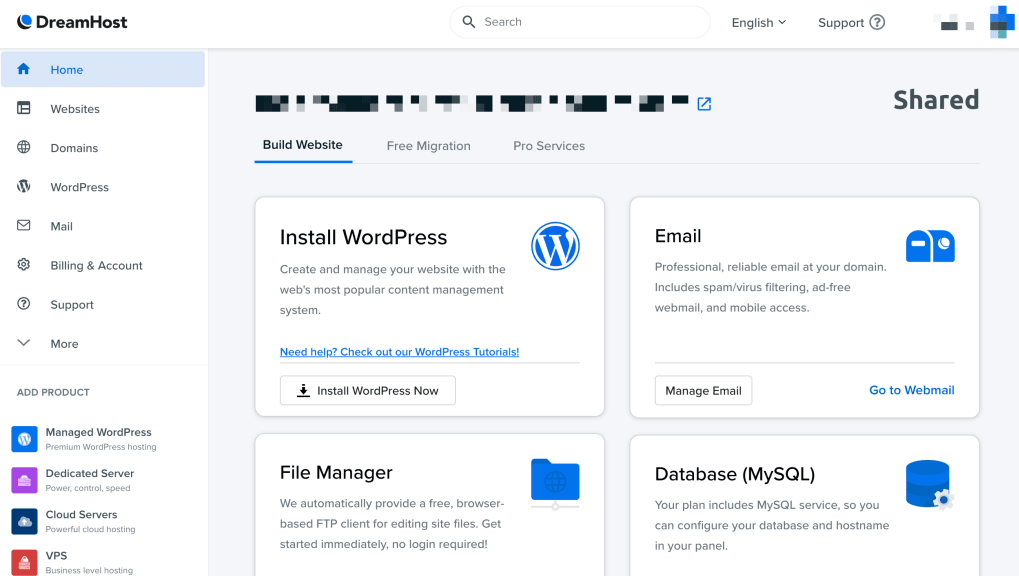
DreamHost’s help center features a vast, searchable knowledge base with guides, FAQs, and tutorials, with 24/7 support via chat and email. They provide extensive WordPress resources, backed by in-house experts. WestHost also has a comprehensive knowledge base and 24/7 support through live chat and ticketing. Their help resources are well-organized, covering various aspects of web hosting and site management. Both providers facilitate easy access to information, but DreamHost’s continually updated database and expert team offer more in-depth assistance.
The platforms provide extensive knowledge bases filled with guides, how-to articles, and instructional content. DreamHost offers a wide range of resources alongside 24/7 chat and phone support. WestHost also boasts a detailed help center with an intuitive search function and around-the-clock support via live chat, phone, and ticketing, ensuring comprehensive user support.
User management
accessibility.
Score Components:
- Role customization (40%): Flexibility in creating and defining user roles and
permissions. - Ease of management (30%): User interface and tools for managing users.
- Access control (20%): Effectiveness of access control measures for different user
levels. - Scalability (10%): Ability to manage a growing number of users efficiently.
 8.1
8.1
 7.2
7.2
🏆 Winner
DreamHost: DreamHost offers extensive features and flexibility for user management, making it a strong choice.
When comparing DreamHost and WestHost in terms of managing user roles, permissions, and accessibility, DreamHost exhibits a more comprehensive approach. DreamHost allows for an unlimited number of SFTP users and provides granular control over SSH access, making it easy to manage multiple users securely. It also offers access to a Subversion repository and crontab, enabling more advanced user roles and automation capabilities. WestHost, while functional with its email and FTP user management, lacks the versatility and depth seen in DreamHost’s offering.
DreamHost’s custom-built control panel is designed to be intuitive, covering all essential domain, email, and server management tasks. This control panel is streamlined to facilitate the design and administration of user roles and permissions. On the other hand, WestHost uses a basic Site Manager interface, which includes step-by-step tutorials and video guides, but may not provide as seamless an experience for managing more complex user requirements compared to DreamHost’s panel.
In terms of access control measures and handling a growing number of users, DreamHost excels with its secure and diversified access options, including SSH, SFTP, and .htaccess password protection. DreamHost’s infrastructure supports advanced programming languages and tools, empowering developers to manage and operate efficiently. WestHost’s focus on basic email and FTP user roles, while adequate for simpler needs, does not scale as effectively for more demanding environments.
DreamHost user roles table:
| Role | Description | Access highlights |
|---|---|---|
| SFTP User | Provides secure file transfer protocol access for multiple users. | Secure access to specific directories, user-specific permissions. |
| SSH User | Allows secure shell access for remote command-line interface. | Full command-line control, supports advanced server management and development tasks. |
| Cron User | Enables scheduling of automated tasks via crontab. | Automate tasks such as backups and script executions at defined intervals. |
| Subversion User | Provides access to the Subversion repository for version control. | Collaborative access to code repositories, useful for development teams. |
| Email User (Pro) | Offers professional email accounts with large storage and security features. | Professional email address, 25GB storage, mobile and desktop sync, spam and phishing filters, ad-free webmail. |
WestHost user roles table:
| Role | Description | Access highlights |
|---|---|---|
| Email User | Provides email access with a custom address linked to your domain. | Set up multiple aliases, primary for email communication purposes. |
| FTP User | Offers FTP access to specific directories within your web space. | Manage files within assigned directories, optional quotas and home directory settings. |
Customer support
hosting provider.
Score Components:
- Support communication channels (30%): Measures the variety of customer support types
provided (live chat, chatbot, email, phone, etc.) - Availability (20%): Assesses the availability hours for each channel, including 24/7
support options. - Technical support quality (30%): Assesses whether the provider offers comprehensive
technical support, including hardware upgrades (e.g., HDD to SSD), software installations, and web
server configuration changes. - Enterprise support (20%): Checks if there are dedicated or priority support services
for enterprise-level customers.
 8.3
8.3
 7.7
7.7
🏆 Winner DreamHost: Offers comprehensive and multilingual customer support with multiple channels available 24/7/365.
 |
 |
|
|---|---|---|
Phone support |
||
Live chat support |
||
Chatbot |
||
Email/ticket support |
||
Enterprise support (dedicated agent, priority support) |
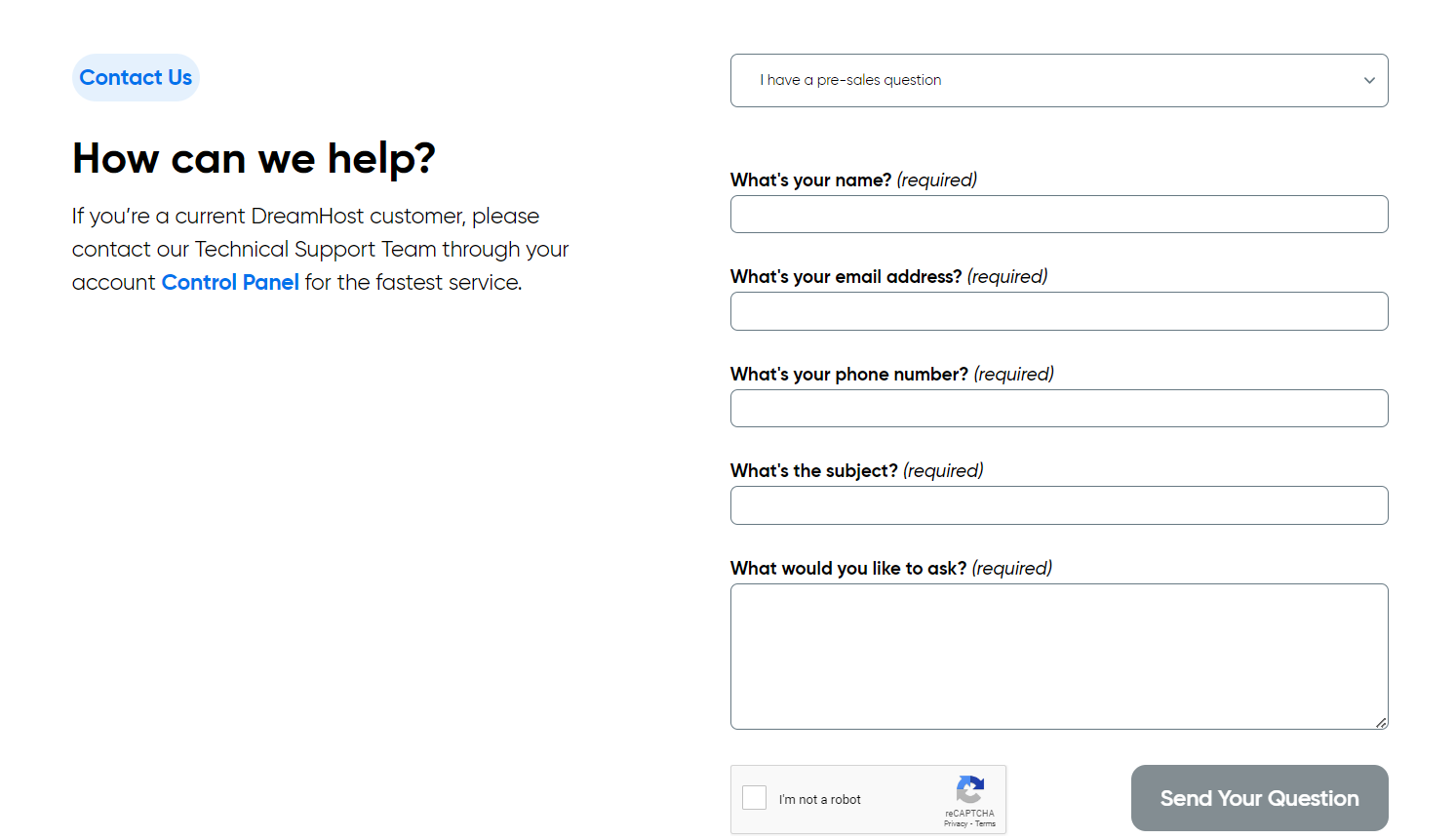
DreamHost and WestHost both offer extensive customer support, though their approaches differ. DreamHost provides support through chat, email, and tickets, all available 24/7/365. They also offer a callback service for an extra fee, but there is no direct phone support. Their knowledge base is detailed, and professional services can be availed for additional fees. DreamHost is particularly quick in responding to live chat and tickets, making it ideal for those who need prompt help.

WestHost, on the other hand, provides 24/7 live chat support, a toll-free US phone number, and email support. They also maintain a forum, blog, and a comprehensive knowledge base. Despite having multiple support channels and commendations for specific agents, customer reviews have noted inconsistencies in the effectiveness and response times. WestHost does offer a 30-day money-back guarantee, which can be appealing for new users. Both hosts are similar in support services but DreamHost edges out with higher overall customer satisfaction.
Dreamhost vs WestHost: User feedback
DreamHost receives praise for its proactive updates, reliable performance, and a range of hosting options at competitive prices. Users appreciate its intuitive web portal, comprehensive end-to-end domain management tools, and competent customer service, particularly in resolving issues. However, the platform’s technical support is often criticized for slow responses, particularly the lack of phone support, and occasional downtime issues. Despite these drawbacks, many users remain loyal due to the affordability, ease of use for beginners, and strong uptime guarantees, although some have experienced more significant challenges and dissatisfaction.
Users find WestHost to be a reliable hosting provider with minimal downtime and high-quality support. The competitive pricing is appreciated, but many users express frustration with the outdated documentation and the need for customer support intervention for tasks like updating SSL certificates. While the service itself is smooth and hassle-free, the administrative interface and outdated guides significantly detract from the overall user experience.
Dreamhost vs WestHost: FAQ
Which platform is better suited for hosting WordPress websites?
DreamHost is specifically designed for WordPress with Managed WordPress Hosting offering automatic updates, daily backups, and priority support. Although WestHost also offers WordPress hosting, DreamHost’s specialized features and performance make it a better choice for WordPress websites.
Are both platforms suitable for beginners?
Yes, both DreamHost and WestHost offer features that cater to beginners. DreamHost provides a user-friendly custom control panel and automated site migration tools, while WestHost includes a personalized control panel and competitive pricing, making both accessible options for new users.
Which hosting service offers better security features?
DreamHost provides good security with options for SSL certificates, malware scanning through DreamShield, SFTP, and SSH support. WestHost, however, includes unlimited free SSL certificates, SiteLock for the first year, and FTPS, making it slightly more robust in terms of built-in security features.
Which platform offers better customer support?
DreamHost provides 24/7/365 support via chat and email but lacks direct phone support. WestHost offers 24/7 support through live chat, email, and a toll-free phone number. Overall, DreamHost’s faster response times and higher customer satisfaction rates make it slightly better despite the lack of phone support.
What are the differences in the control panels offered by each hosting service?
DreamHost uses a custom-built control panel that is designed for simplicity and ease of use, particularly beneficial for non-technical users. WestHost uses the standard cPanel, which, though feature-rich and familiar to many, has a steeper learning curve compared to DreamHost’s more intuitive interface.
The making of this blog
We followed a clear, step-by-step process to write and research this article.









